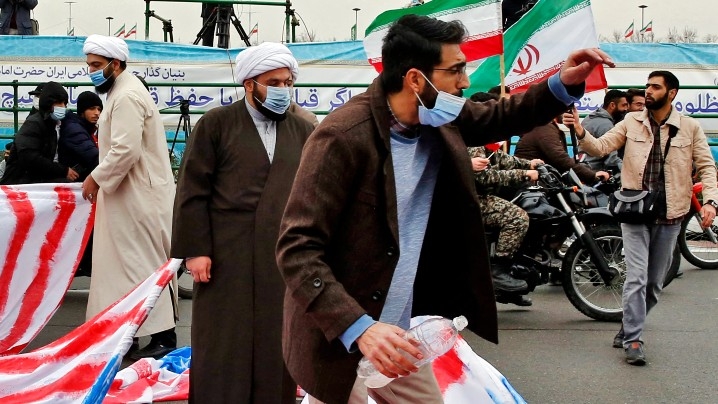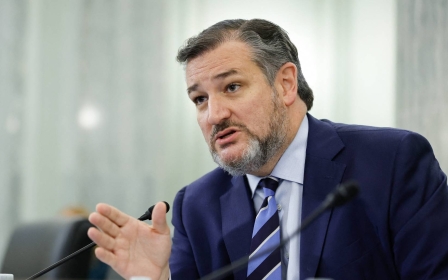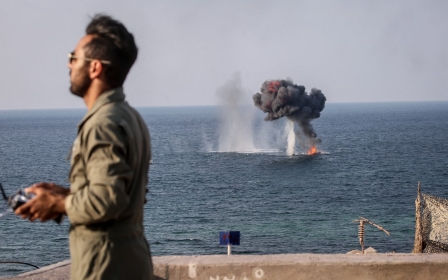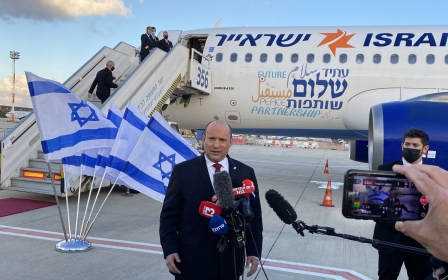House Republicans threaten to scuttle Biden's Iran nuclear diplomacy

More than 150 Republican House members have warned US President Joe Biden against reaching a nuclear deal with Iran without congressional approval, vowing they will "work tirelessly" to reimpose any lifted sanctions on Tehran.
"We will view any agreement reached in Vienna which is not submitted to the US Senate for ratification as a treaty - including any and all secret agreements made with Iran directly or on the sidelines of official talks—as non-binding," the lawmakers wrote in a letter dated Wednesday.
"Indeed, if you forge an agreement with the Supreme Leader of Iran without formal Congressional approval, it will be temporary and non-binding and will meet the same fate as the Joint Comprehensive Plan of Action (JCPOA)," said the letter.
Many Republicans in Congress have been stalwart opponents of returning to the 2015 nuclear deal with Tehran, which former President Donald Trump walked away from in 2018.
Republican lawmakers have stressed that under the Iran Nuclear Agreement Review Act of 2015, Biden must submit any nuclear deal with Iran for Congress' review within five days of concluding the agreement.
After this, Congress has the option to put forward a resolution against the agreement. However, it is unlikely that Republicans, who do not hold a majority in the Senate, would be able to muster enough votes to do so.
Still, even putting a potential nuclear agreement to a vote in Congress could be used by Republicans as political fuel in the upcoming midterm elections, where the GOP is currently also seeking to take back control of both Houses this November.
The letter comes after a similar effort made by Senate Republicans earlier this month.
After entering office last year, US President Joe Biden re-entered indirect negotiations with Iran in the hopes of returning to the 2015 agreement. The talks have been mediated by Europe, China and Russia.
In recent days, diplomats have voiced increased optimism with the US and Iran, saying talks have reached the final stretches.
Five percent enrichment for $7bn
A 20-page draft deal would involve a phased return to the 2015 nuclear deal, with both sides initially taking interim steps to curb enrichment and lift some sanctions, according to Reuters.
According to diplomats quoted by the news agency, the draft outline includes a series of steps for all parties to take following its final approval, starting with Iran suspending enrichment of uranium above five percent.
The first phase will include the unfreezing of some $7bn in Iranian funds stuck in South Korean banks under US sanctions, as well as the release of western prisoners held in Iran.
Eventually, Iran will return to core nuclear limits including the 3.67 percent cap on enrichment purity, diplomats said, and sanctions will begin to be waived.
The new agreement is said to entail the US granting waivers on sanctions against the Islamic Republic’s oil sector, similar to what was done with the 2015 deal.
According to the diplomats, the time between the initiation of the deal and when sanctions are waived has yet to be decided but is estimated to be between one and three months.
Iran is also seeking a guarantee that the US will not be able to withdraw unilaterally from the agreement in the future and is demanding promises that the US will halt pressuring companies not to trade or invest in Iran.
Iran's top nuclear negotiator, Ali Bagheri Kani, said on Wednesday that world powers were "closer than ever" to reaching an agreement, while the US State Department said it was in the "very final stages" of indirect talks with the Islamic Republic.
However, Iranian foreign ministry spokesperson Saeed Khatibzadeh appeared to deny the report's validity, tweeting that any eventual deal "will be far from the unsourced spin making the rounds".
Meanwhile, there have also been reports that Iran has demanded the lifting of the Islamic Revolutionary Guard Corps (IRGC) from US terror blacklists.
In their letter, the Republican lawmakers said they would "oppose any attempt to rescind the designation of the Islamic Revolutionary Guard Corps as a foreign terrorist organization".
Middle East Eye delivers independent and unrivalled coverage and analysis of the Middle East, North Africa and beyond. To learn more about republishing this content and the associated fees, please fill out this form. More about MEE can be found here.





